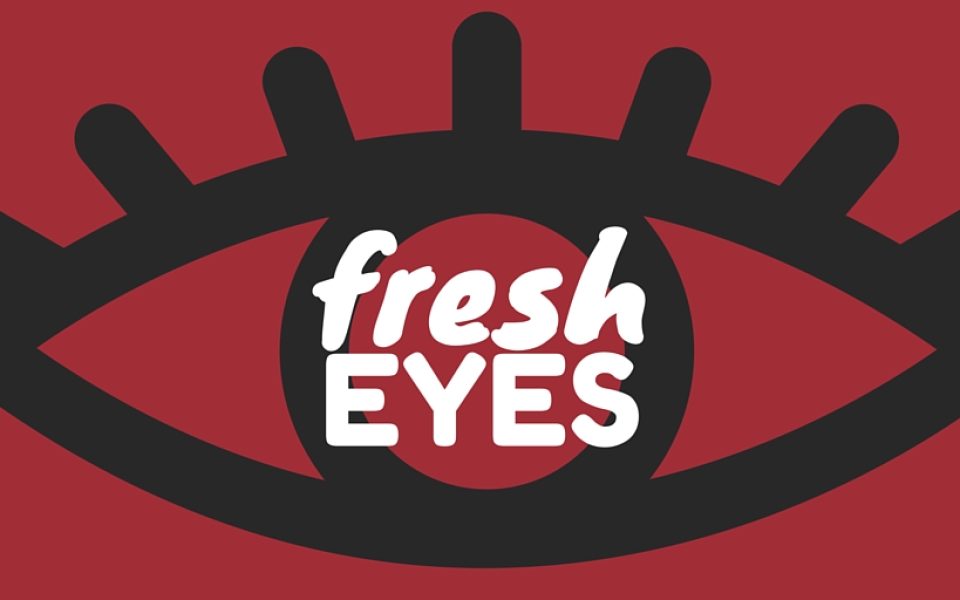 by Maddie Himes
by Maddie Himes
There are nondescript, tinted-windowed commercial buildings all over the Triad that we all drive by on a daily basis. The only hint we have of the goings-on inside those walls is a sign on the outside, indicating what company or organization resides within.
The same goes for the hospital, where I work. And just like the mysteries inside those buildings we’ll never see, behind the walls of the Triad’s local hospitals are med-surg floors, ICUs, mother-baby and labor and delivery units, privy to so many monumental and ponderous things.
There on the inside, my team of nurses and I experience things that no one looking in from the outside could begin to imagine. But I’ll try to bypass the mystery and share a few stories here.
The nursing profession in practice is not like school. Let me repeat: It is not like school. In clinical training, work is structured, and student nurses scurry around following their nurse and they touch patients with great timidity. As much as nursing school tries to prepare you for the real world, there’s nothing that will acclimate you better than the gritty reality of hospital work.
Such as the days when you have to put condom catheters on your patients (only the dudes obviously). It’s what it sounds like. A condom, except, try putting it on a flaccid penis. If you’re a visual person, like I am, you’re probably imagining a lot of pinching and pulling. You’re 100 percent correct.
And there’s the patient who asks to have his balls powdered. He called his testicles his “bag,” and I spent a quick 30 seconds thinking to myself, What the hell is he talking about?, and, once it dawned on me, I spent another 30 seconds holding in laughter. I thought to myself, I cannot laugh in this 90-year-old man’s face.
In school, they don’t teach you about ball powdering. Or the importance of poop.
Regular bowel movements are of tantamount concern to nurses as plutonium exports are to global powers. After administering an enema to a patient, I returned to the room to see if we’d had any success. The aide and I found the patient lying on her side with her fingers up her ass, pulling excrement out of her bum as if it were normal. Her response, to our surprise and concern, was, “Oh, I have to do this to get it out.”
There are, of course, the more somber moments. I was taking care of a dying patient. The moment came to put her on “comfort care,” which means we only do interventions that reduce the patient’s pain to make their passing as peaceful as possible. Going into the room to administer Ativan, surrounded by her weeping family, was one of the most difficult things I’ve done. I whispered what the medication was for as I gave it through her IV, trying to keep my voice from breaking.
I didn’t know how to answer the family’s questions about “How does she look to you?” and “What do you think?” I didn’t know, because I’d never been in that position before, taking care of a patient who was actively dying. I tried my best to answer them, to give them some of the comfort they were seeking in those questions.
I cringe to remember the time another very sick patient asked me to pray for her. When she asked, I stopped in my tracks, stunned at the magnitude of this request. This patient had never met me before and didn’t know my spiritual beliefs, yet in her vulnerability, she asked me for comfort. I called the nearest chaplain to pray with her.
I left the room and leaned against the wall. The heaviness in my heart did not dissipate. All I could think was, I don’t think God even listens, and, How could I be so selfish to deny something from this women she so clearly wanted? These moments can leave me in my head all day, questioning my beliefs.
Sometimes during my lunch break (if I get one), I sit outside and look at the exterior of the hospital, thinking about how serene it looks. Thousands of cars drive by the hospital without a thought for the things going on inside these walls. But I know the chaos, the hilarity and the sadness inside. The people in their hospital beds, the nurses, the aides, the doctors and the physical therapists. We all leave work at the end of our shifts, get in our cars and drive home like nothing’s happened.
Just a normal day at work.
Maddie Himes is a nurse working in Greensboro. She spends her spare time reading about existentialism, feminism and the current political climate until she falls asleep in her hammock.
Join the First Amendment Society, a membership that goes directly to funding TCB‘s newsroom.
We believe that reporting can save the world.
The TCB First Amendment Society recognizes the vital role of a free, unfettered press with a bundling of local experiences designed to build community, and unique engagements with our newsroom that will help you understand, and shape, local journalism’s critical role in uplifting the people in our cities.
All revenue goes directly into the newsroom as reporters’ salaries and freelance commissions.


Leave a Reply